EU MRV is based on Regulation (EU) 2015/757 covering the monitoring, reporting and verification of carbon dioxide emissions from maritime transport, it entered into force on 1 July 2015.
This regulation applies to ships above 5,000 gross tonnages that are calling at any EU or EEA (Norway/Iceland) port and carrying on commercial activities. Consequently, stops for the sole purposes of refueling, obtaining supplies, relieving the crew, going into dry-dock or making repairs to the ship and/or its equipment, stops in port because the ship is in need of assistance or in distress, ship-to-ship transfers carried out outside ports, and stops for the sole purpose of taking shelter form adverse weather or rendered necessary by search and rescue activities are excluded.
The company shall monitor and report following the parameters : port of departure and port of arrival including the date and hour of departure and arrival, the amount and emission factor for each type of fuel consumed in total, CO2 emitted, distance travelled, time spent at sea, cargo carried, transport work, average energy efficiency.
As EU ETS is expanded for the emissions from shipping, the greenhouse gases covered by EU MRV regulation include not only CO2 but also CH4 and N2O from 2024, and it is necessary to report aggregated emissions data at the company level. By 1 April 2024, companies shall submit to the administering authority respnsible a monitoring plan reflecting the amended regulation assessed by the verifier.
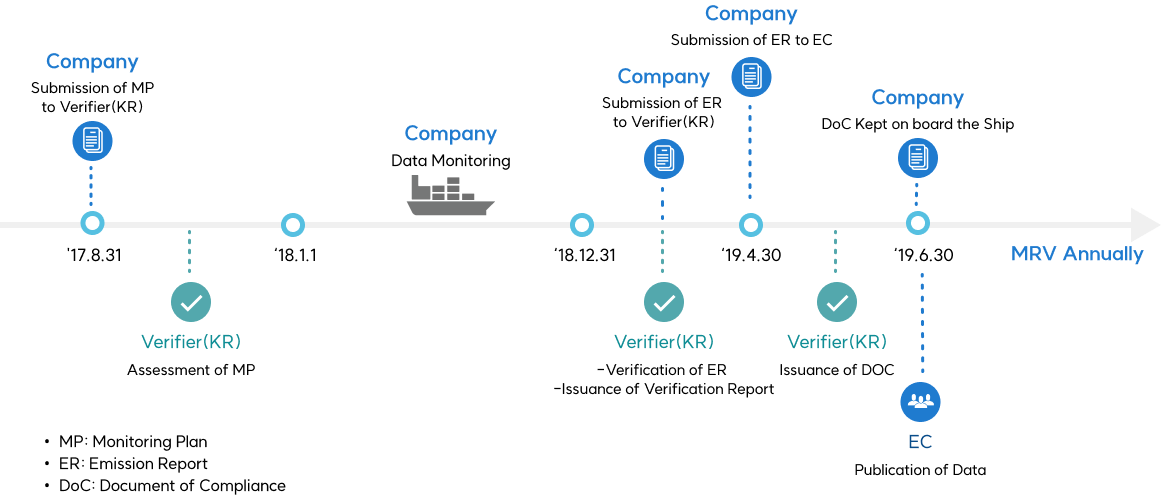
The Emissions Trading System (ETS) is a scheme that enables the buying and selling of greenhouse gas emission rights. The European Union (EU) has decided to extend the EU ETS from 2024 to include greenhouse gas emissions from ships that operate within the EU. Starting from 2024, ships with a gross tonnage (GT) of 5,000 or above, operating in the EU, will need to surrender emission allowances to the EU administering authority for the greenhouse gas emissions they generate while operating in the EU. If a company fails to surrender emission allowances corresponding to their greenhouse gas emissions, they will be fined 100 Euros per ton of emissions that were not surrendered, and must surrender them as emission allowances in the following year. Necessary emission allowances can be purchased by participating in trading of EU Allowances(EUAs)-Auctioning at European Energy Exchange(EEX) or Trading on the secondary market through brokers or online trading platforms.
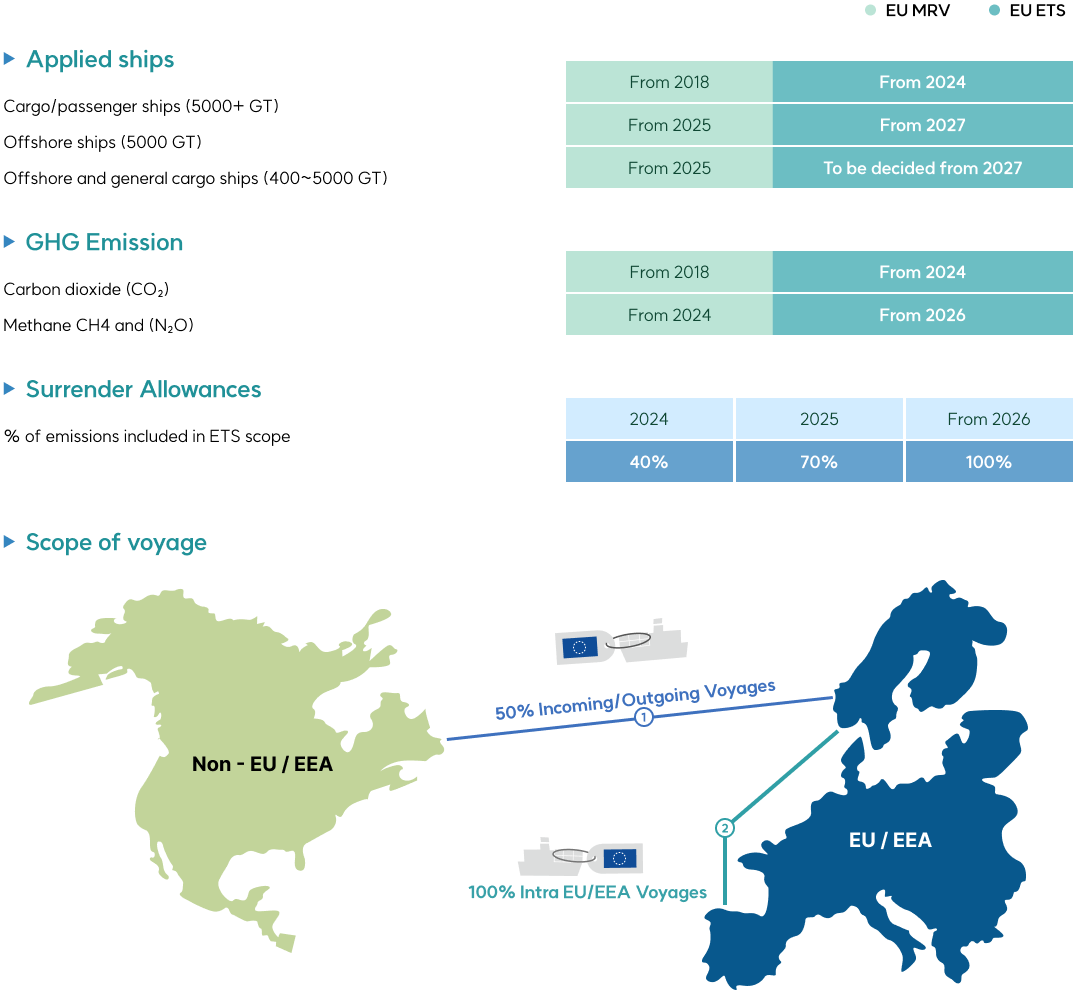
Starting in 2025, the new regulation‘FuelEU Maritime’will be enforced for the use of renewable or low-carbon fuels in maritime transportation. Its goal is to regulate eco-friendly ship fuels by gradually increasing the greenhouse gas intensity limit (GHG Intensity Limit) for EU sailing vessels until 2050. GHG intensity is calculated by dividing the total greenhouse gas emissions from the fuel's entire life cycle (Well-to-Wake or WtW) by the fuel's energy content (gCO2eq/MJ), which includes emissions from the production process (Well-to-Tank or WtT) and emissions during use (Tank-to-Wake or TtW). If the greenhouse gas intensity of the fuel used exceeds the set standard, a deficit fee will be imposed. Conversely, a surplus fee will be generated if the greenhouse gas intensity is lower, which can be saved for future use. Deficit fees need to be paid as a penalty to the EU regulatory authority, or the payer can borrow from the balance of the next compliance year(Borrowing) Surplus fees, on the other hand, can be saved for future use(Banking) Additionally, vessels can pool their surplus and deficit fees between the ships and companies(Pooling) There are incentives for using Renewable Fuels of Non-Biological Origin (RFNBO), and starting in 2035, there is a mandatory requirement for vessels to use RFNBO for up to 2% of their total energy consumption. The use of on-shore power supply (OPS) or zero-emission technology is mandatory for passenger and container ships while docked in the EU's major ports by 2030.
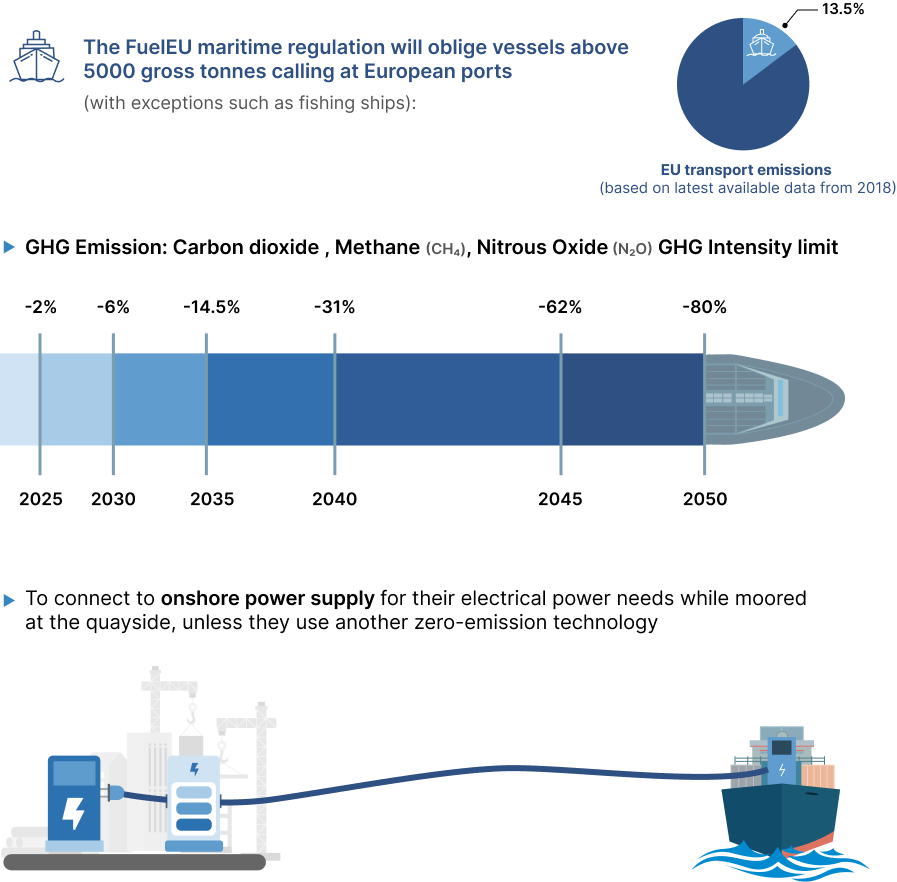
Korean Register is a verifier accredited by the national accreditation body DAkkS (Deutsche Akkreditierungsstelle, Federal Republic of Germany).
By 31 August 2017, companies must submit a monitoring plan for each of their ships indicating the method chosen to monitor and report this information to KR. By 1 April 2024, it should be submitted to the administering authority responsible a monitoring plan reflecting the amended EU MRV regulation assessed by the verifier. The monitoring plan shall consist of a complete and transparent documentation of the monitoring methods being used for the ship concerned and shall contain at least the elements as written in Article 6 of Regulation (EU) 2015/757.
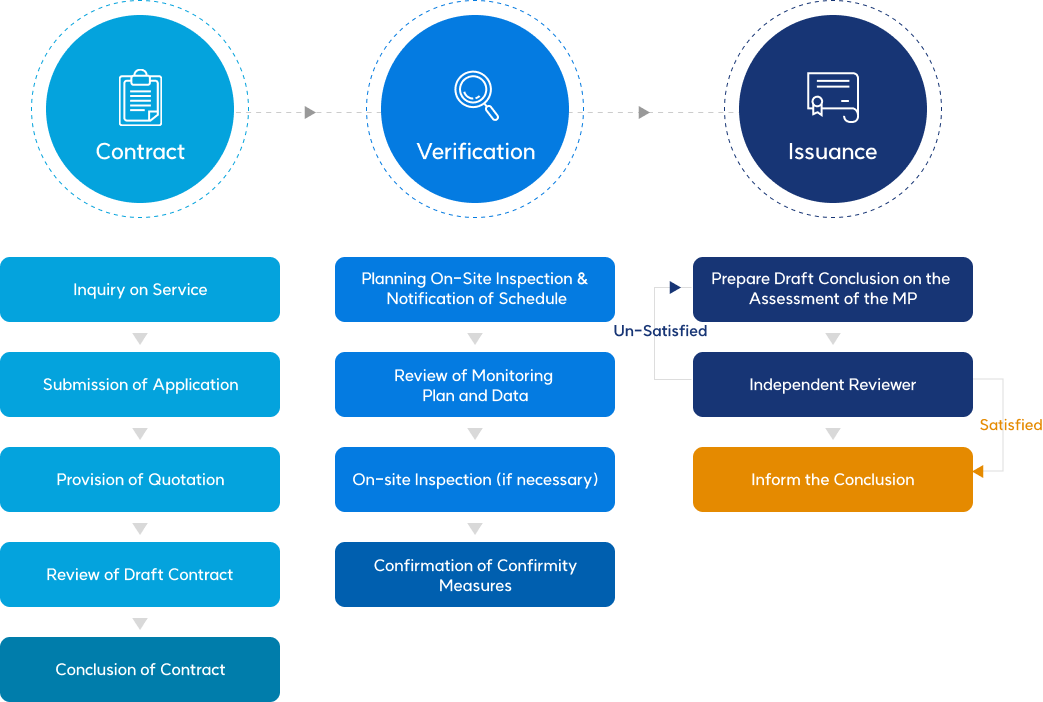
From 2019, by 30 April of each year, companies shall submit an emission report concerning the CO2 emission and other relevant information for the entire reporting period for each ship satisfactorily verified by Korean Register(KR) to Commission and to authorities of the flag states concerned. From 2024, the emission of CH4 and N2O shall be included in the emissions report. The emissions report shall consist of a complete and standardized annual aggregated data and shall contain at least the elements as written in Article 11 of Regulation (EU) 2015/757. KR verifies emission report and issues a document of compliance (DOC) for the ship concerned if the verified report complies with the requirements as written in Article 6-10, Annex I and Annex II of Regulation (EU) 2015/757.
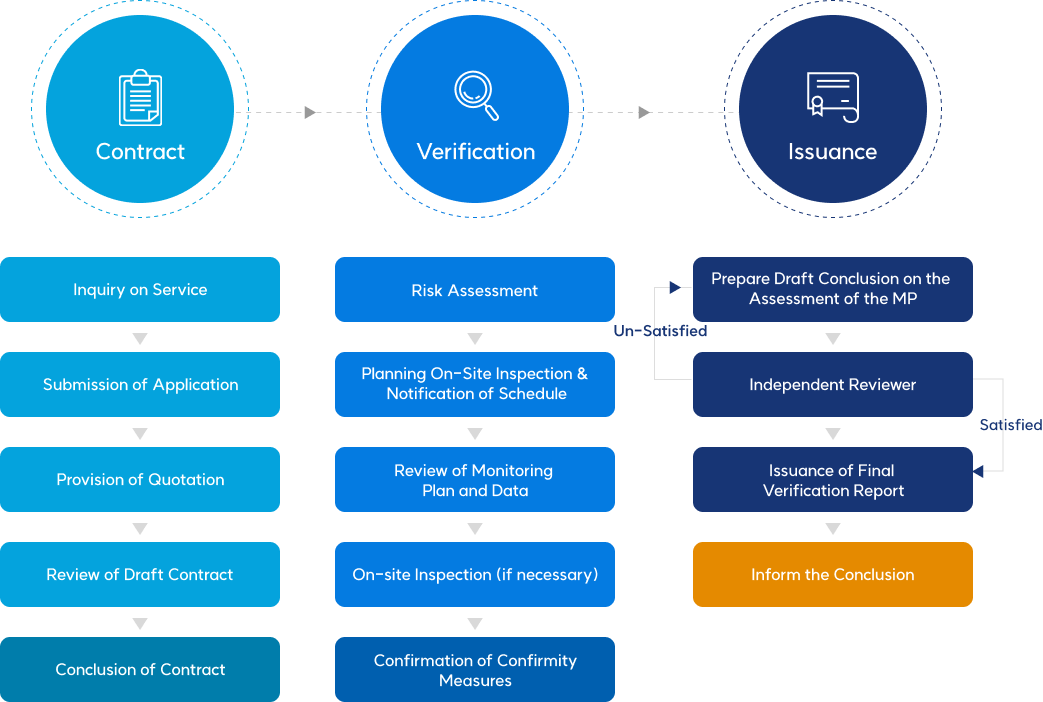
KR customers can use the GHG verification service more easily and quickly through KR-GEARs free of charge.